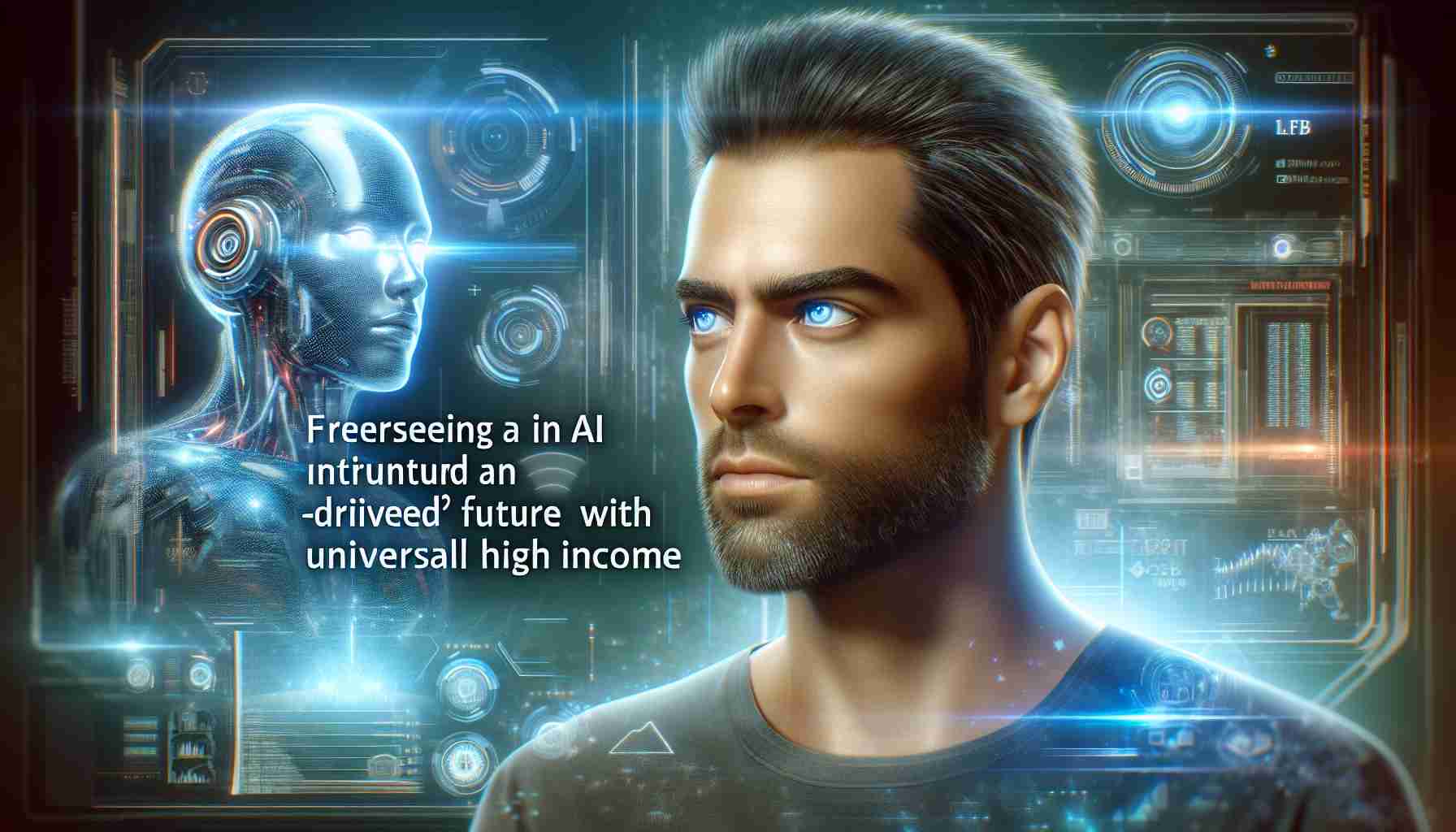Elon Musk Predicts the End of Traditional Jobs Due to AI
The future of work is set to take an unprecedented turn according to tech visionary Elon Musk. Speaking at the renowned technology event, VivaTech 2024 in Paris, Musk shared his belief that artificial intelligence (AI) will render human jobs obsolete, a process that shouldn’t necessarily be met with trepidation.
The Idea of Work Becoming Optional
Envisaging a scenario where employment is no longer a necessity, Musk expounded on the idea that people might choose to work only as a form of leisure activity. While physical presence was via webcam, Musk’s voice resonated with the audience as he described a world where AI and robots would supply all necessary goods and services, transforming the very nature of ‘work’ as we know it.
Universal High Income: A New Economic Paradigm
For this AI-dominated future to flourish, Musk emphasized the need for a ‘universal high income’ to support individuals, differentiating it from the concept of a basic universal income without defining the specifics. In an environment abundant with goods and services, the necessity for traditional income generation would diminish.
AI’s Growing Capacity and the Quest for Responsible Use
As AI’s capabilities surge, the pace of adoption in the job market proves slower than anticipated – a revelation by a study from the MIT Computer Science and Artificial Intelligence Laboratory. Despite the slow integration, regulatory authorities, corporations, and consumers are still grappling to implement this powerful technology responsibly.
While Musk highlighted his concerns about AI, referring to it as his greatest fear, he also acknowledged the potential for a utopian society as portrayed in fictional works. Musk raised philosophical questions about finding purpose in an AI-driven world and proposed that humans might be the ones to imbue AI with meaning.
The Social Media Warning: Parental Guidance Advised
Musk took the opportunity to advise parents to moderate their children’s social media use. Warning against the dopamine-maximizing programming of AI on these platforms, he highlighted the need for greater control over technological influences on the younger generation.
Key Questions and Answers:
Q: What is Universal High Income?
A: Universal High Income (UHI) is a form of financial support that would be provided to all citizens regardless of employment status. Whereas Basic Universal Income (UBI) aims to cover basic living expenses, UHI implies a higher standard of living for all. However, Elon Musk did not provide specifics on how UHI would be quantified or distributed.
Q: What challenges are associated with an AI-driven future and UHI?
A: Implementing UHI poses substantial economic challenges including funding, inflation control, and potential reduction in people’s willingness to work. Additionally, an AI-driven future could lead to the displacement of workers, requiring society to manage a transition to new forms of employment or activities.
Key Challenges and Controversies:
– Funding UHI: Financing a universal high income would require a new economic framework. This may involve restructuring tax systems, redirecting government spending, or finding new ways to generate state revenue.
– Technology Regulation: Ensuring that AI is developed and implemented responsibly requires stringent legislative and ethical guidelines to prevent misuse or unintended consequences.
– Social Impact: AI has the potential to exacerbate social inequalities if benefits are not distributed equitably. There is also the concern of how society will cope with a reduced need for traditional work, in terms of identity and social structure.
– Job Displacement: While AI may create new job categories, it will also render many current professions obsolete, requiring mass retraining and education initiatives.
Advantages of an AI-Driven Future:
– Increased Efficiency: AI has the potential to dramatically increase production and service efficiency, leading to an abundance of goods and services.
– Reduction of Monotonous Work: Robots and AI can take over repetitive and dangerous tasks, allowing humans to engage in more creative and fulfilling activities.
– Better Quality of Life: With UHI, individuals could have more freedom to pursue their interests and passions without the constraints of financial insecurity.
Disadvantages of an AI-Driven Future:
– Economic Disruption: The transition to an AI-driven economy could result in significant disruption, with widespread job losses before the benefits of AI are fully realized.
– Social Disjunction: If not managed well, the societal shift could lead to increased inequality and social unrest.
– Loss of Purpose: Jobs often provide a sense of purpose and community. An AI-driven world where work is optional may lead to existential challenges for many people.
Related Links:
For more information on basic income ideas, you can visit the following websites:
– Universal Basic Income – Nordic
– Basic Income Earth Network (BIEN)
For insights into AI research and policy discussions:
– MIT Computer Science and Artificial Intelligence Laboratory
– AI Now Institute
It is important to note that the provided URLs are main pages of the respective organizations relevant to AI and UBI at the time of writing. Please visit these links for the most current information and resources.

